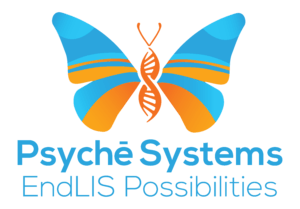The medical field can sometimes be unpredictable, relying on a certain degree of trial and error. For patients and medical staff alike, this is problematic. Medical systems rely on scientific research, years of training, and reliable software systems. However, other factors complicate each of these matters. Therefore, reliable patient treatment and medical solutions need to be checked regularly for best practices. As the times change and new technologies emerge, there is an even greater focus on accuracy and precision medicine. In fact, the focus on precise medical treatment has emerged in response to the unpredictable and ever-changing medical field.
Psychē Medical Software Solutions can help with information regarding the latest breakthroughs in precision medicine. Now your clinical laboratory can learn everything you need to know about what precision medicine is and how to implement changes within your organization. For even more information, visit the Psychē Medical website to connect with our 24/7 response support team today!
Introduction to Precision Medicine
Let’s start with the basics of what we mean when we discuss precision medicine. Precision medicine accounts for the fact that people’s bodies can vary differently both within and outside of basic parameters. In short, no two people are the same, so no two people should receive the same medical attention. Each case should be examined independently of others. To be more exact, different medical treatments and medicines can affect people differently. This is true even if a treatment generally has positive results overall. Specific populations might receive treatments better than others based on genetic background, predisposition, other medical conditions, and personal histories.
Therefore, precision medicine has evolved to target lapses in medical treatments and approaches that don’t account for individual differences. In other words, precision medicine is the practice of personalizing treatments to specific patients’ needs. It takes into account a more comprehensive patient history, such as lifestyle habits, living conditions, genetic history, and current medical status.
Popular Focus Areas for Precision Medicine
Cancer treatments have become one popular area of focus for precision medicine. We are continually learning about new treatments and studies that shed light on the best approach to handling a cancer diagnosis. However, each patient’s history is unique. Furthermore, there are so many different categories of cancer. Precision medical treatment holds an important place within cancer’s evolution.
However, there are many common and well-cited examples of precision medicine outside of cancer. One simple example is when a doctor matches a patient’s blood type before a blood transfusion. This shows the medical team taking a personalized approach to medical treatment to accurately care for a patient without further harm.
Precision Medicine Helps with Treatment of Diseases
There are many applications for precision medicine. One benefit of using precision medicine is how it can easily help treat disease more effectively. In fact, precision medicine can better understand diseases in general, including how they adapt, evolve, and affect certain demographics. As a result, this can support medical research for disease prevention and cures.
Reveals Gaps in Research
When research is conducted across multiple medical experts, universities, and areas of focus, there can be major gaps in critical data. Sometimes researchers catch these early on, and other times it takes years to fill in these holes. Another application for precision medicine is to help fill in essential gaps in research regarding medical disease and treatment protocols. Everyday progress is made in multiple areas of research, and with the help of precise medical approaches, progress can be made even faster.

Treat Complex Disorders Accurately
Complex disorders often take a multifaceted approach towards healing. Treatment of complex disorders is one area that still needs medical improvements within the industry. The difficulty lies in the disorder already being complex, and the fact that different people react to treatment approaches differently. Therefore, it can be hard to streamline an accurate and unified approach to treating these conditions.
That is why precision medicine is one of the best ways to address complex disorders. You can apply it to both mental and physical conditions. It lets you focus on individual history, medications, and treatments that might be more accurate for each patient. As a result, it can also foster more personal connections between doctors and patients.
Cost-Effective Measures
There are many more benefits to choosing a precision medicine approach for your medical organization, hospital, or lab. However, the last major one to consider is cost-effectiveness. With this precise approach, you only spend money on individual patient treatments which are more likely to succeed. Therefore, money is not spent on expensive treatments unless they are perceived as having a chance of truly helping each patient. In the end, this saves your lab or hospital money and ensures there are additional resources available for each patient.
Learn More with Psychē Medical Laboratory Software
As one of the nation’s leading medical software companies, Psychē has helped medical laboratories and organizations across the country develop precision medicine protocols. We are here to help your lab succeed with implementing precision medical practices to prevent diseases, aid in treatment, and help your patients stay healthy. If you are ready to truly discover what software your lab needs, contact Psychē Medical Laboratory Software today! We can be reached by phone at 508-422-0157 or via the contact form on our website.

